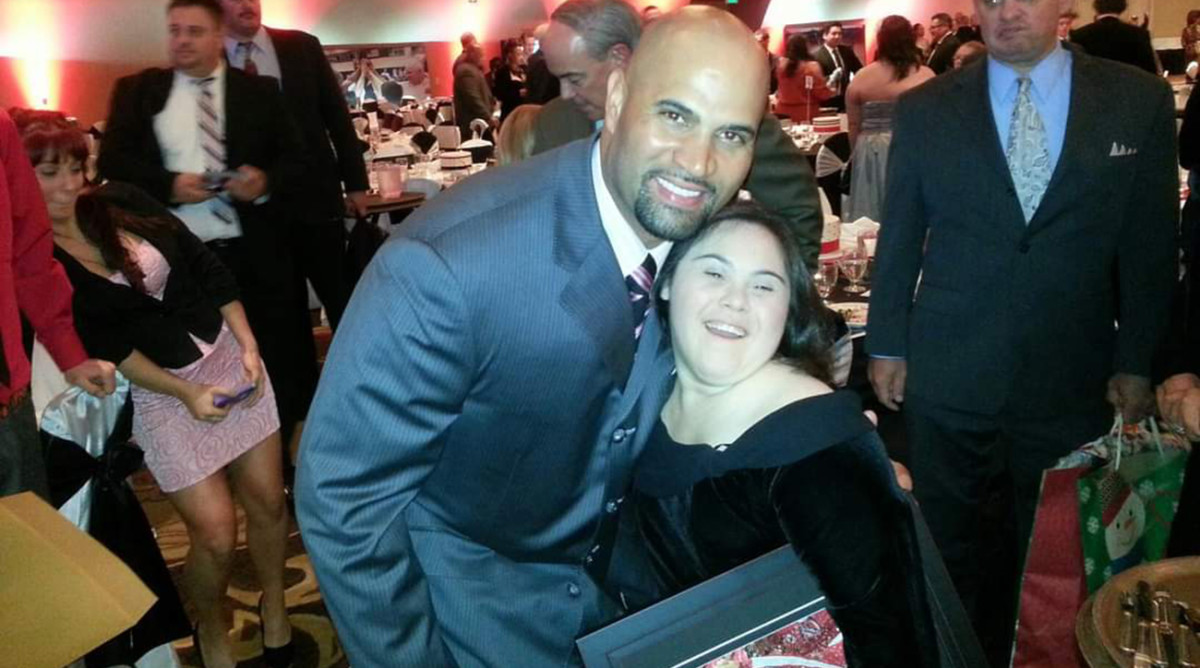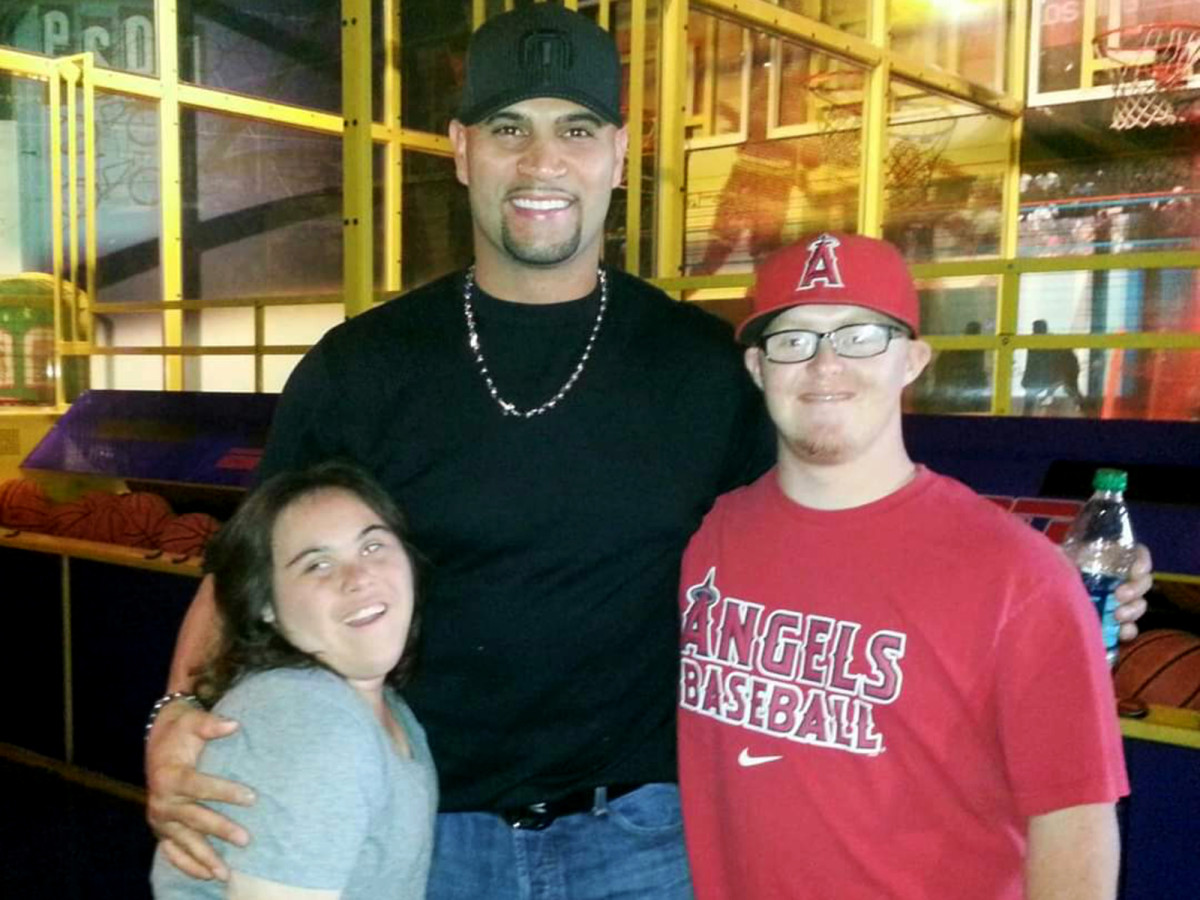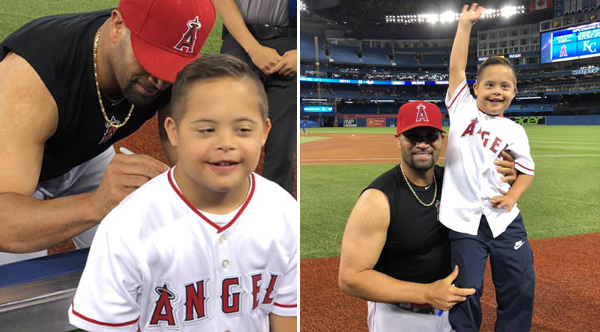There is another, quieter constituency that is mourning the end of Pujols’s time with Los Angeles: people in Orange County with Down syndrome.
THE FOLLOWING WRITTEN CONTENT BY STEPHANIE APSTEIN

Courtesy of Kellie Perez-Tuchowski
He always looked Jeremy in the eye. That’s what Lisa Fraser keeps thinking. He never talked around him, like he wasn’t there.
Angels fans will remember the 500th home run and the 3,000th hit. Cardinals fans will remember the three MVP awards and the two World Series titles. If indeed Albert Pujols’s baseball career is over, as it seemed to be on Thursday when Los Angeles designated him for assignment, then fans of the sport will remember him as the 13th-round pick made good, the person who finishes as the active leader in games played (2,886), plate appearances (12,486), at bats (10,925), runs (1,852), hits (3,253), doubles (669), home runs (667), RBIs (2,112), walks (1,334) and WAR (99.4).
But there is another, quieter constituency that is mourning the end of Pujols’s time with the Angels: people in Orange County with Down syndrome.

Lisa, whose 21-year-old son, Jeremy, has Down syndrome, chokes up when she hears that Pujols, 41, will be leaving the team.
“He’s a super all-around good person,” she says. “They’re a good family, with really a desire to be impactful in our community and to promote not just awareness, because I think awareness is one aspect, but also acceptance: seeing people with Down syndrome out in the community doing things that they love. … I’m so sad to know that they may no longer be here.”
Pujols was an 18-year-old community college shortstop when he met his future wife, Deidre. On their first date at the Cheesecake Factory in Kansas City, Deidre told Albert that she had an infant daughter, Isabella, who had Down syndrome. Two years later, they were married, and Pujols became Dad. Five years after that, they started the Pujols Family Foundation, which works with children with Down syndrome and their families. In 2008 he won the Roberto Clemente Award for his community service.
The foundation keeps its headquarters in St. Louis, where Pujols spent the first 11 years of his career, but when he signed with the Angels before the 2012 season, he expanded its operations to include Orange County, where he, Deidre and their five children reside. They hosted cooking classes and golf tournaments for children with Down syndrome, often inviting other stars, including Mike Trout. They threw proms for high schoolers with Down syndrome. They facilitated the hiring of some young adults with Down syndrome as greeters at team stores at arenas. They invited them and their families to attend games at Angel Stadium. Even as the pandemic swept the country, they moved the events onto Zoom so that kids could stay connected.
“I think the overarching goal was always to give people with Down syndrome an opportunity to do everyday, average things that any other person would do,” Lisa says. Read more from Sports Illustrated.





